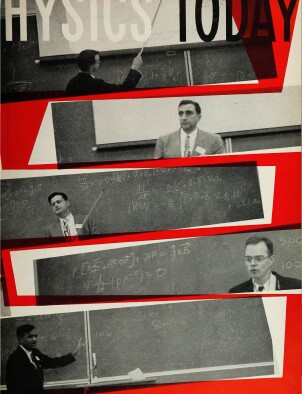The role of the national laboratory in American scientific progress
DOI: 10.1063/1.3062503
The national laboratory as an adjunct to research activity is emerging during our lifetimes as an essential element of scientific progress. Consequently, it seems worthwhile to examine the roles and the special characteristics of the national laboratory that differentiate it from the traditional laboratories of the universities and other establishments conducting undirected and fundamental scientific research. I shall not, however, refer to the outstanding engineering, applied, and generally directed research activities that are often conducted by these national laboratories, since these activities have much in common with the general industrial research carried on throughout the whole fabric of American scientific life.
This article is only available in PDF format
More about the authors
L. V. Berkner, Associated Universities, Inc..




